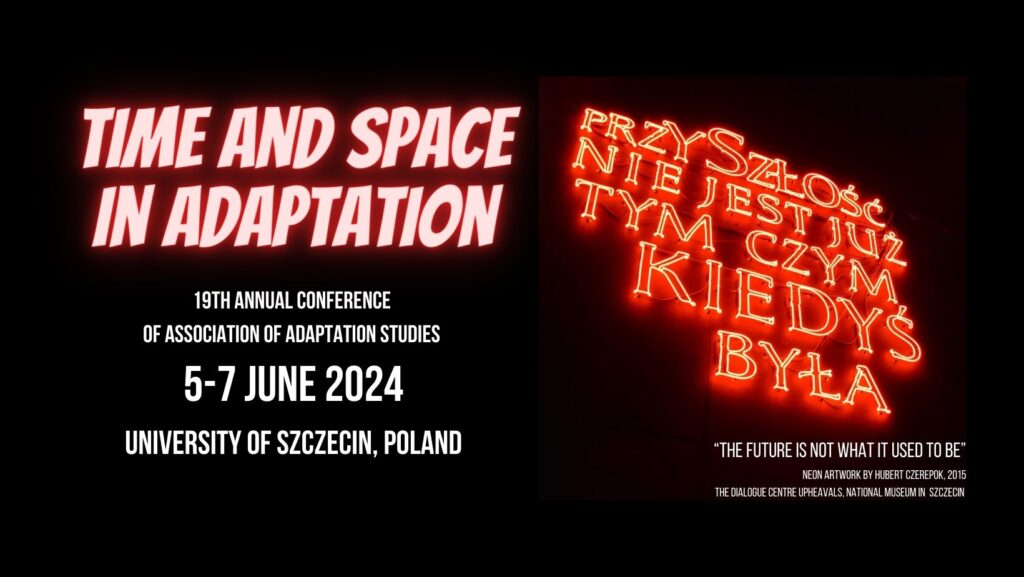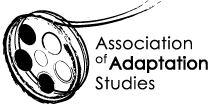 Association of Adaptation Studies
Association of Adaptation Studies
REGISTERED CHARITY 1133677
Minutes for AAS AGM
15:00–16:30, 9 June 2023
Trustees present: Anna Blackwell, Deborah Cartmell, Colleen Kennedy-Karpat, Thomas Leitch, Kyle Meikle, Allen Redmon, Eckart Voigts, Christina Wilkins
Over twenty AAS members present.
Approval of minutes from last year’s AGM (Kyle)
Treasurer’s report + membership report (Anna)
Anna reports our membership at 190 (more or less)—higher than last year’s 160. Half as many of our memberships are concessionary as standard, with a high number of memberships plus subscriptions. Anna notes the increase in the annual cost of subscriptions to Adaptation.
Allen volunteers to follow up with the 34 presenters at this year’s conference who haven’t paid their annual dues.
There is a suggestion to move from a rolling 12-month subscription to a specific period.
Kamilla raises a concern about financial sustainability: cutting costs or generating income, seconded by Anna. Linda suggests getting onto EBSCO or Project MUSE for indexing online articles in order to generate money, something to follow up with OUP. Tom raises the question of charging attendees for online events.
Anna reports via Madeleine that the AAS Twitter account has 240 new followers.
Report on online materials
Eckart reports that we have 97 subscribers to the YouTube channel. He solicits new subscribers to try to reach 100.
He reports uploading 35 videos, a mix of recent events and papers (including some COVID holdovers).
Report on Mentoring Workshop (Monika/Christina)
We consider opening the mentoring workshop beyond postgraduate students—possibly to early career scholars or those who are just starting out in adaptation studies. One of the participants lauded the small-group introduction of the pre-conference conference.
Report on status of redesigned AAS logo (Tom)
We discuss the dubious ethics of a redesign contest.
Kyle and Colleen both offer to get in touch with possible designers who submit bids.
Jonathan brings up the examples of Screen t-shirts and Deborah mentions t-shirts at BFI conferences.
Report on outreach activities (Tom):
To Be Continued 2 (four online panels in September), SAMLA (eight online panels in October), MLA (three panels, two in person and one online, in San Francisco in January), LFA/AAS (sixteen online panels in February), NeMLA (six in-person panels in Niagara Falls in March). All these activities are planned to continue, though not necessarily at their present strength, in 2023–24. To these could be added many one-day events at De Montfort University and elsewhere, like Christina’s one-day BAFTSS adaptation event in July.
Plans for 2024 conference (Deborah)
Considering rising travel costs and dwindling travel funding, Tom mulls a couple of options: meeting every other year, or alternating between in-person and online meetings.
Deborah talks through two options for next year: Cambridge and London. Cambridge University would run at £60 + Value Added Tax (VAT) = £72.00 per person per day. Registration would be £216.00 (say £250). We could slim down and do two days. While we’re bound to get a return on this, we would have to pay upfront. Alternatively, the University of London has availability on 6–8 June 2024.
Other options we’ve discussed include the University of Baltimore in the USA and Sophia University in Japan—both of which remain possibilities, but not for 2024—and a conference in Brazil (proposed by several members last year, but without any follow-up so far).
Kamilla wonders about seeing some money from registration that comes to the Association itself; suggests raising membership fees and directing part of those (additional) funds to build up our reserves.
Colleen notes how robust our online events have been and suggests requiring, say, £20 to register for an online conference. Deborah suggests online events tied to special issues. Christina warns us to be mindful of precarious faculty. Barbara points out the attractions of online events for our students.
Erica Moulton floats the possibility of UW-Madison or Whitewater (but not until 2025 or later). Colleen raises the question of geographic diversity. We discuss Szczecin, Poland, as a possibility, especially given its proximity to Berlin (despite the “war raging next door,” per Barbara Braid). We raise Turkey as another distant possibility. Julie Thompson suggests Burman U in Lacombe, Alberta, near Edmonton and Calgary. Kamilla argues for a U.S. conference, given that our last Stateside gathering was in 2014. Julie wonders if we can’t find a venue that isn’t a university, since those have proven profitable for the likes of LFA. Deborah, noting that we often have to pay up front, suggests that we possibly explore BFI Southbank again. No matter the location, Allen suggest that we plan far enough in advance to connect any given conference to local events.
Suggestions for further outreach (Colleen):
We discuss possibilities for international projects: joint project funding, exchanges, fellowships, etc.
We discuss the logistics of indexing conference proceedings for the benefit of participants who need a record of indexed proceedings in order to apply for national funding for conference attendance.
We discuss the possibility of an online pre-conference added to next year’s event (one day? longer?), perhaps including panels organized around specific themes (e.g., adaptation and prestige TV, or other topics aligned with special issues of Adaptation).
Kyle suggests a professionalization workshop, Colleen would like multiple workshops pecific to different countries and time zones.
We discuss the idea of activities open to undergraduates.
